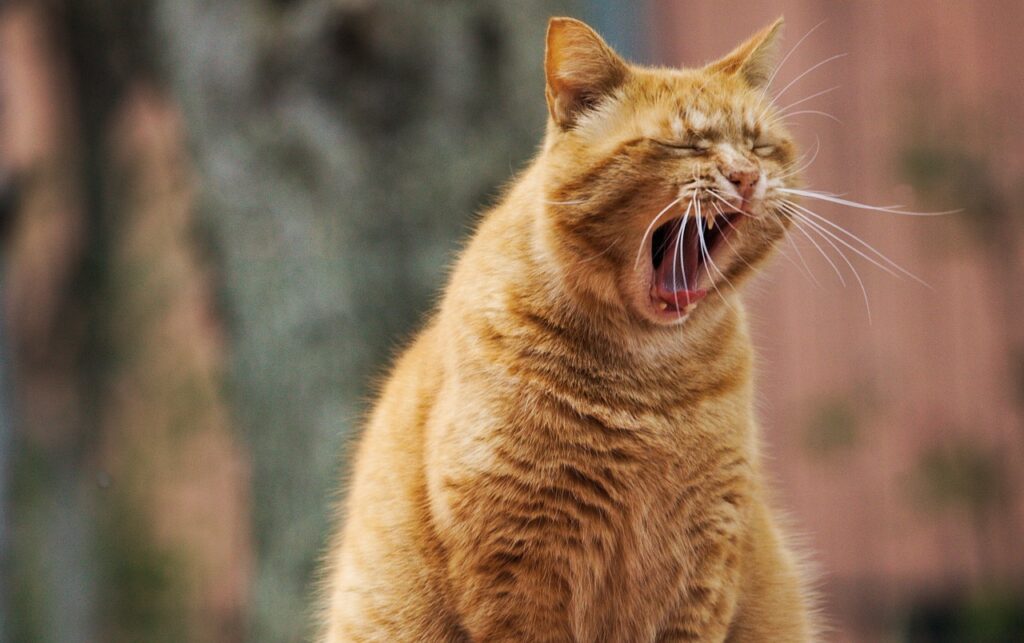Can Cats Eat Melon? – Yes, They Can
Melon can be a tasty, hydrating treat for cats. Although cats are obligate carnivores, requiring mainly protein, an occasional slice of melon is safe. As with many human foods, melons should only be given to cats in moderation due to their sugar content. Before sharing this sweet snack with your feline friend, remove any seeds and the rind, as these could be choking hazards or cause gastrointestinal upset.
Can Kittens Eat Melon?
Yes, but with caution. Kittens have sensitive digestive systems and are still growing, so their main nutritional focus should be on high-quality kitten food that provides all the essential nutrients. If you do choose to give your kitten a small piece of melon, make sure it is ripe, seedless, and cut into tiny, manageable pieces to prevent choking.
Things to consider when feeding melon to kittens?
Always remember that kittens might have more delicate health than adult cats. Hence, it’s crucial to consider the size of the melon pieces, the ripeness of the fruit, and the frequency of feeding. Monitor your kitten for any signs of digestive distress and only offer melon as an occasional treat, not a regular part of their diet.
Nutritional Benefits of Melon for Cats – Why Melon is good for Cats?
Hydration Boost
Since melons are composed mostly of water, they’re a great way to help keep your cat hydrated, especially on a hot day or for cats that are typically reluctant to drink water.
Vitamin A
Like many fruits, melons have Vitamin A, which is an essential vitamin for cats and contributes to maintaining healthy skin, coat, and eyes.
Vitamin C
This antioxidant is less critical for cats, who can produce Vitamin C themselves, but it may still support immune health in small quantities.
Digestive Fiber
While cats don’t need much fiber, a little bit can help with digestion. Melon contains soluble and insoluble fibers that can aid in this respect.
Low-Calorie Treat
Offering melon as a treat can be a good low-fat, low-calorie option compared to many commercial cat treats filled with additives and more calories.
Potential Allergies: Can Cats Be Allergic to Melon?
It’s uncommon, but cats can develop allergies to any food, including melon. If your cat has never had melon before, start with a tiny amount to ensure there’s no adverse reaction.
Symptoms of Melon Allergies in Cats
- Gastrointestinal distress: Look for signs like vomiting or diarrhea soon after offering melon.
- Skin irritation: Observe if there’s any excessive scratching or signs of hives and rashes.
- Respiratory issues: Notice any coughing, wheezing, or difficulty breathing, which could be signs of a severe allergic reaction.
What to Do If Your Cat Shows Symptoms?
- Contact your vet: If you suspect an allergic reaction, get in touch with your vet for advice.
- Eliminate melon from diet: Don’t offer any more melon and observe if symptoms improve.
- Monitor your cat closely: Keep an eye on your cat for worsening symptoms and be ready to visit the vet if necessary.
Recommended Amount: How Much Melon Can a Cat Consume?
The recommended amount of melon for a cat is just a small piece (1-2 bites) once in a while. It should not constitute more than 10% of your cat’s daily caloric intake and should be considered as a treat rather than a dietary staple.
Things to Consider When Feeding Melon to Cats
Even though melon is safe in small amounts, consider your cat’s overall diet and health. For diabetic cats, or those with weight issues, consult your vet before introducing melon due to its sugar content.
How to Feed Melon to Cats: A Quick Guide
Melon can add a splash of variety to your cat’s treats. Always remove the seeds and rind, and offer small, bite-sized pieces to prevent choking. Here are a few fun ways to include melon in your cat’s diet.
Simple Melon Balls
Use a melon baller to create small melon balls that are easy for your cat to lick and nibble on. This can be a refreshing summer treat.
Frozen Melon Cubes
Cut melon into small cubes and freeze them. These make for a fun, cool treat on hot days – but make sure they’re thawed just enough not to be too hard on your cat’s teeth.
Melon Puree
Puree a small amount of melon and freeze it in an ice cube tray. You can mix this with a bit of cat-friendly broth for an extra tasty treat.
Conclusion
In conclusion, cats can safely enjoy melon in moderation. It’s essential to serve it properly and monitor your pet for any adverse reactions. Always consider your cat’s dietary needs and health conditions before introducing new treats, and consult with your vet if you’re unsure. With these guidelines, you can safely offer a little variety in your cat’s diet with this sweet, hydrating fruit.



